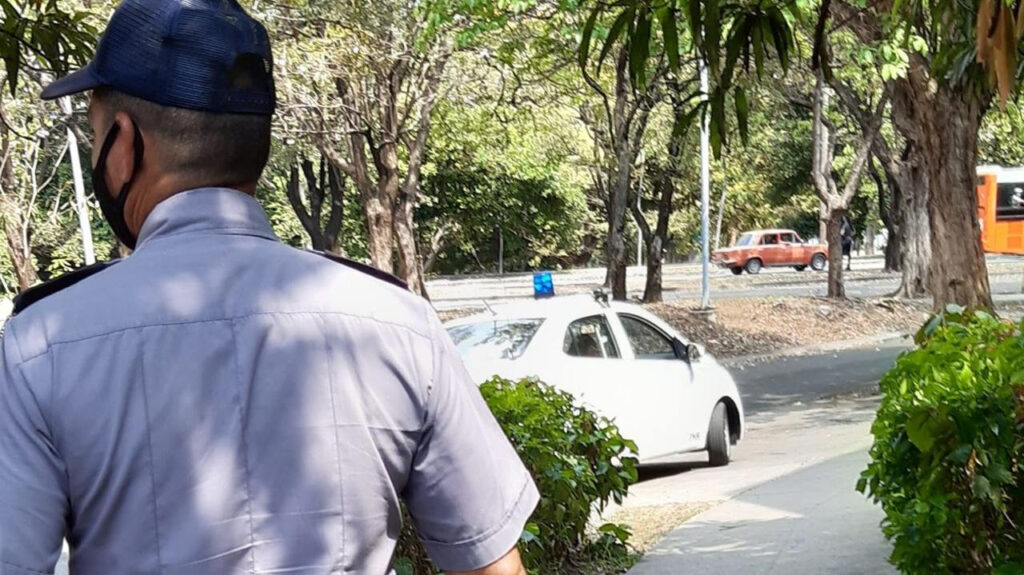The online news source did not reveal the identity of any of those affected “to avoid further reprisals”

14ymedio, Havana, 4 October 2024 — A group of journalists and Cubanet collaborators has suffered “threats, intimidation, arrests and confiscation of work assets and money in recent days.” This was announced by the online news source in an alert published this Thursday, warning about the Regime’s “repressive escalation” after the new Social Communication Law went into effect this week.
Cubanet did not reveal the identity of those affected, “to avoid further reprisals,” but it reports that they were threatened with ” prison sentences” and consequences for their families. They have also been filmed by agents for hours – something they describe as “psychological torture” – and had their electronic devices and money taken away from them.
Although it admits that this is a “common tactic” of State Security, Cubanet draws attention to the “increasing wave of harassment,” not only against independent journalists but also against opponents who publicly denounce the country’s crisis.
The objective of the political police – “to suppress critical voices and avoid the dissemination of information not controlled by the State” – remains the same, but with the entry into force of the law the State has one more legal tool to repress, Cubanet points out. It is a “new instrument of the Cuban authorities to limit freedom of expression and access to information,” which has been condemned by several international organizations, such as the Inter-American Press Society.
The objective of the political police is to “suppress critical voices and avoid the dissemination of information not controlled by the State”
The truth is that, despite the law’s entry into force, the situation of the independent press remains as vulnerable and dangerous as that of the previous day. The exercise of non-state journalism was already punishable by the Constitution, the Criminal Code and Decree Law 370.
Responses cannot be demanded from leaders – a right reserved for State reporters – and any critical information provided is considered an act of “communicational aggression that takes place against the country” or an instigation to “terrorism and war in any of its forms and manifestations, including cyberwar.” Nor does the law provide new penalties, since it do


